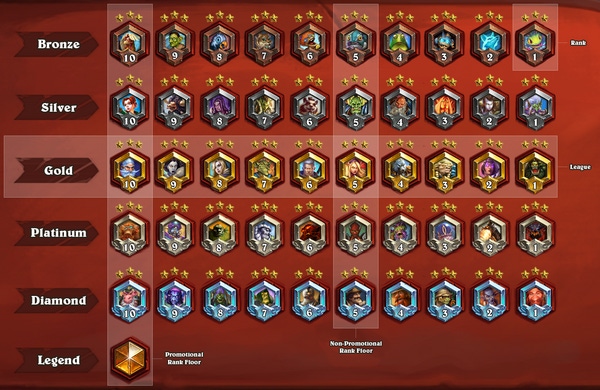Richard Garfield blogs about the differences between a ranked ladder and tournaments for competitive play.
Recently I started playing a digital game. There was a tournament announced for the top players. Although I wasn’t a top player – the game was new enough and there was enough luck in the play that I thought maybe I could qualify, and so I started paying attention to my ranking.
Quickly I noticed that I was having less fun because I was no longer experimenting and trying new things – I was focusing on what I knew worked. I began to lean more heavily on what other people said was correct rather than finding my own way. Losses were setbacks rather than learning experiences. When I rose to a level that corresponded to my actual skill, I stalled. Then the games became more samey, with the players mostly playing similar styles. I noticed that I felt like a mediocre player even though I was in the top 10%.
The experience brought into focus and made personal some of the misgivings I have had about extensive player rankings in games. […]



IMO the flaw with ladders isn’t the winrate, but the reward structure. Reward structures always reward wins at the expense of losses, and players have more fun when they’re being rewarded. In practice, people can have fun games they lose as well, but only if they find those games rewarding.
Because reward structures are so heavily favored towards winning games, people optimize their playstyles around what will win the most games (and on MTGA, what will do so the fastest) rather than what will be the most fun for them.
Unfortunately, win-oriented reward structures come with a financial incentive - you can give fewer rewards while also making a more competitive (and thus more invested) community around your game.